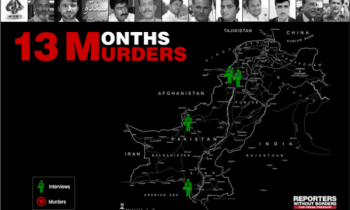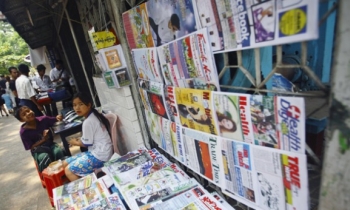NEW YORK: For years it has been said that the newspaper industry is on a downturn. Publishers have always characterized it as a gentle, slow decline, a perception that allows them to take time to figure things out. But a new report from Merrill Lynch's Lauren Rich Fine -- a champion of newspapers -- reveals publishers better get on the stick, because the industry may be deteriorating faster than thought.
"I have not completely lost faith," she wrote in a report released today, "but I still think the economic climate is going to be challenging ... the point is that newspapers need to change."
Two main culprits for the "sobering outlook," reasons that have been expressed before, but this time with a sense of urgency: changing media consumption and the migration of classified ads to the web. But she also lowered the overall ad revenue, and profit margin, outlooks.
"As a believer in being proactive, I would take a series of steps that could hurt margins near term but would couple them with heightened share repurchases to placate shareholders for a time," she writes. "In fact, it would be interesting to bring in new managements at a number of companies to have them focus on what newspapers need to do to be competitive rather than trying to hold on to what was."
What about the big McClatchy purchase of Knight Ridder? She thinks the company could have garnered the same growth rate if it had repurchased its own stock versus acquiring Knight Ridder.
"We are now concluding that the fundamental outlook for newspapers is even more challenging than we had previously thought; in essence profits generated from an almost monopolistic position within classifieds is being eliminated as the core listings business could become a loss leader for other online classified models," according to the report.
Merrill Lynch analyzed the classified landscape starting with an estimate of a five-year impact from the shift of the category from print to online. The study takes into account that many of those classified ads are moving from print to newspaper Web sites, but it calls into question how many have drifted to competitor sites.
Fine believes there is a $9 billion gap of what the industry is generating from print classified revenue over a 10-year period. With that in mind, Merrill uses the Newspaper Association of America's estimate that newspapers picked up $2 billion in online advertising revenue in 2005 - the largest part, the research firm believes, coming from online classified revenue.
That leaves $7 billion in classified revenue unaccounted for "which must then represent loss of share to competitors" including HotJobs, Monster, and the newspaper-owned CareerBuilder.
Based on the analysis, print classified volume is at 70% of what it should be, and the report points out, since 2003 the category has been losing roughly 5% per year.
On top of that, Merrill Lynch believes that newspapers are charging too much for online classified ads since many competitors are charging lower prices or charging nothing at all, to get the traffic to offer other services.
While the classified category is causing the most concern, the industry faces other issues as well. Retail, for starters, is weak. "The Federated/May merger is certainly one issue, but we suspect the decline in circulation could be another factor," Fine wrote. National remains unsteady and preprint is slacking, most likely because of higher paper costs.
Merrill Lynch revised its 2006, 2007 and five-year growth rate ad revenue forecasts down to 1.2%, 1.1%, and 1.6% from 1.8%, 1.4%, and 2%, respectively. Margins are expected to come under pressure over the next five years sinking to 16% in 2011 from today's average of 20%.
Fine advocates delivering sections of the paper via PDF files -- for free -- to get more readers and cut back on costs. She's a fan of citizen journalism: "Even I get a kick out of seeing my name in the local paper," she wrote. "The journalists who would have covered the sporting events can now do a deeper dive into investigative journalism which really distinguishes one paper from the next."
Buying other newspapers, as McClatchy and MediaNews Group have done recently, does not seem like a good idea, Fine wrote: "It almost feels like doubling down."
She concludes: "We still think it is a stinker of an industry, but believe management skill and cash flow reinvestment will prove the distinguishing qualities."
Jennifer Saba (jsaba@editorandpublisher.com) is associate editor at E&P.









